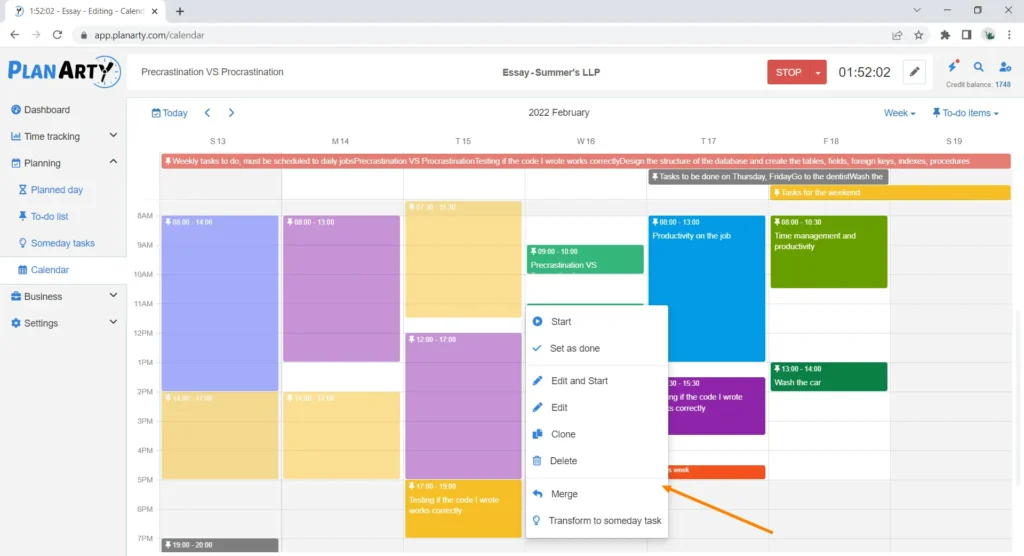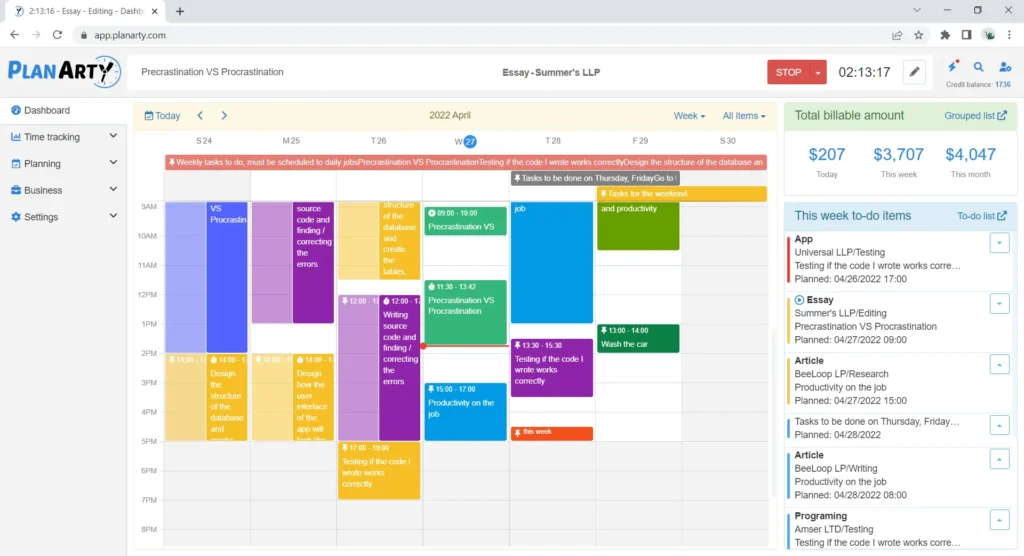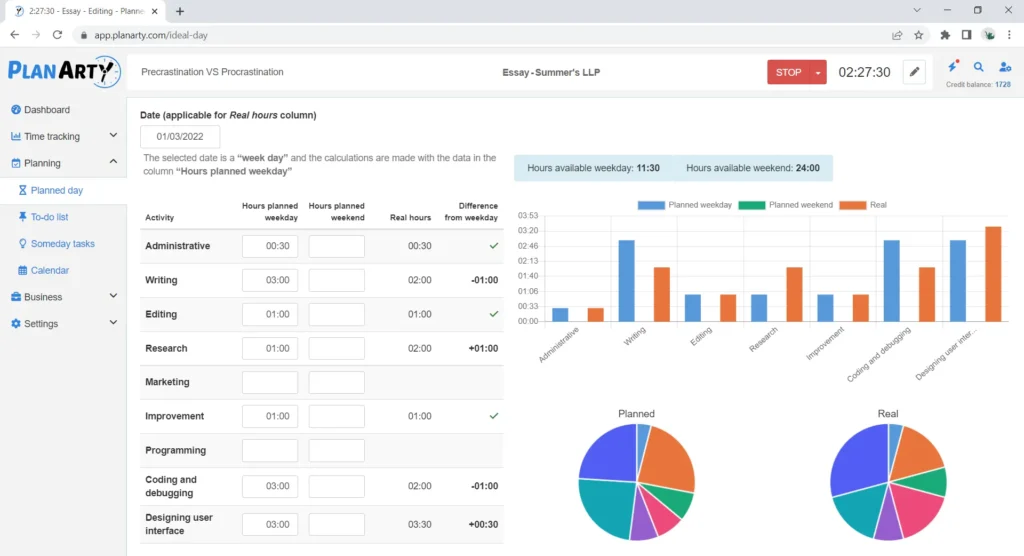Working too much for a long time will backfire at some point, and you will be the first to experience the negative effects. Even if you are a diligent and ambitious employee, you need to draw the line somewhere and speak up.
Your managers might not realize that you are overwhelmed until you let them know. Here are a few things you can do and say, without sounding unprofessional, to make your boss realize that you have too much on your plate:
- Be realistic; cut yourself some slack.
- Determine whether your request is reasonable.
- Prepare by asking yourself some questions.
- Try to role-play before facing your boss.
- Get more information.
- Learn how to say ‘No.’
We will discuss these steps in detail a bit later in the article. First, let’s see if it’s normal to raise such an issue.
Is it OK to tell your boss you have too much work?
Keep in mind that you are not the only person in the company who encounters such difficulties.
Nearly half of employees say that they are stressed because they have too much work or that there are unrealistic expectations at work. And more than half of them are dissatisfied with their salaries.
Too much work – A job-related stress factor
Some surveys conducted by the American Psychological Association show that:
- In 2019, 44% of employees believed they had too much work.
- In 2021, 50% of employees said they had been working too much.
Negative impacts of working too much (as work-related stress)
In the same survey, the following experiences were most often mentioned by employees as the negative impacts of work-related stress:
- Lack of interest, motivation, or energy (26%)
- Difficulty focusing (21%)
- Lack of effort at work (19%)
- Lower productivity (18%)
- Desire to quit (17%)
- Negative thoughts (17%)
- Irritability or anger with coworkers and customers (15%)
If you, as an employee, are stressed for various work-related reasons, both the productivity and the quality of your work will decrease. Nothing good can come from such a situation – only inconveniences and shortcomings will result.
For these reasons, you should show your superiors that you have too much work to do.
They will certainly analyze the situation and take the necessary measures. This will avoid the complications that can arise if you become burned out due to working too much.
Yes! It’s definitely okay to tell your boss that you have too much work.
You just have to find the right way to do so, depending on the company and the situation.
Now let’s look at the impact that working too much can have on you as a person.
Short-term effects of working too much
The short-term side effects of working too much might not be severe and will not endanger our health, but they will definitely cause discomfort. Among the first symptoms, we might experience some of the following:
- Headaches
- Gastrointestinal upset
- Sleep disorders
- Difficulty concentrating
- Short temper
- Low morale
If we continue to work in conditions that overwhelm us, complications can arise.
Long-term effects of too much work
The long-term stress caused by too much work can severely affect us physically and mentally.
- First of all, the risk of cardiovascular diseases increases remarkably because the levels of sugar, cholesterol, and cortisol in our bodies increase. Also, in such situations, the blood pressure tends to stay high.
- Second, we are prone to anxiety and depression.
- Third, as if the first two were not bad enough, we might become more prone to coping with stress by adopting behaviors that hurt us. These include smoking, drinking too much coffee, not exercising, and engaging in bad eating habits.
Whether we are talking about short-term or long-term effects, neither are desirable, either personally or professionally. Therefore, it is essential to identify the signs of burnout as soon as possible and take the necessary steps to improve the situation.
How do you feel when you’re overwhelmed by too much work?

Not sure if you’re feeling stressed or overwhelmed by too much work? Here are some clues that, along with physical symptoms, can help you determine whether you are close to burnout:
- You always feel exhausted and can’t get enough rest. Most of the time, this feeling is manifested both physically and mentally. It seems that no matter what you do, it’s never enough to “recharge your batteries.”
- You can’t forget your workload, either in your free time or when you sleep. Sometimes you wake up in the middle of the night and your first thought is about what you still have to do at work.
- Most people seem annoying, and even things are annoying. Interactions of any kind seem stressful.
- You feel that nothing you do is good enough or that you’re not in the right place (workplace). Nothing you do makes sense or leads to results.
If you recognize yourself in these clues, take action. One of the most important things you can do is get rid of what is overwhelming in your workload. If you can’t do this yourself, ask your superiors to do something about it.
However, don’t do this on impulse, as you might not get the result you want.
We present a 6-step strategy to tell your boss that you have too much work to do without risking being fired.
How do I tell my boss I have too much work?
Step 1– Cut Yourself Some Slack
The first thing to do is relax and cut yourself some slack. Feeling overwhelmed at work does not mean you are not a good employee. Most organizations try to do more with less to ensure a favorable bottom line. You just happen to be part of that process, which means you have more work to do – and less time to do it.
If you have already proven yourself, turning down a request or two or asking for a reprieve should not hurt. If your manager or boss is understanding and professional, the decision will not reflect badly on you. In fact, it might even increase your credibility, as your employers will realize that you understand your potential.
Most bosses want you to speak up if something is preventing you from performing at your best. Yes, it will be uncomfortable at first, as no one wants to admit they cannot handle an assigned task. However, this is the responsible and smart thing to do.
Think about it. If you are overwhelmed, you will not be able to meet your commitments, much less the organizational goals. Once you realize this, the stress of confronting your boss with your request should ease.
Step 2 – Determine Whether Your Request Is Reasonable
Before you confront your boss about the extra work you are assigned, determine whether the effort is worth it. Here are some things to consider:
- Do you wish to remain in your current position for long? If you are an intern or have only a few months left on the job, for instance, just get through the workload, as you’ll be out of there shortly. However, if you love the job and plan on remaining for a few years, addressing the issue will be worth your while.
- Does the request deviate from your job description as well as the typical work practices the organization expects from all employees? Or do you think you are being taken advantage of? To set relevant expectations for what you think is reasonable for your line of work, make sure you establish all the details from the start. If someone offers you a new position, ask them about the number of hours you are expected to work and your responsibilities.
If you are convinced that you want to keep your job, make sure once again that the problem is with the workload.
Prove to your boss you have too much work – example
For a while, carefully plan all your activities, estimating the time you need for each one as accurately as possible.
Do this directly in the Calendar because it allows you to be flexible with your plans if unforeseen situations arise and you must make changes. Also, you can initiate the time-tracking for the task you intend to work on. Just select the desired option from the list.
On the Dashboard, you can see your schedule at a glance. No one and nothing stands in the way of your efficiency now. Work hard, track your time, and draw the necessary conclusions at the end of the day.
This is the most effective way to obtain accurate information to support your point of view in front of bosses.
In addition, you might discover time management flaws that you didn’t know about. Then you can work on them to dramatically improve your productivity.
Step 3 – Prepare by Asking Yourself Some Questions
Before setting up that meeting with your boss, ask yourself some basic questions. These will help you internalize your intent so you can demand a lower workload without flinching:
- What do I want for myself?
- What do I expect from my boss?
- What do I expect to get from our work relationship?
The answers to these questions will help you determine what you expect to gain from your hard work. After this, you can move ahead and ask yourself the following questions:
- What are the facts of the issue I am facing? Examine them neutrally as an observer to determine whether you are really overworked, or just over-thinking.
- What does my proposed solution do for me and for the company?
- How do I think my boss will react and how will I react if the result is unfavorable?
Step 4 – Role-Play Before Facing Your Boss
Once you have the answers to the aforementioned questions, play out the entire scenario with someone you trust. Begin by explaining the situation to them; share your feelings without sounding accusatory. Then, ask your partner to be you as you play the role of your boss.
Play out the scenario this way, taking note of both reactions and the words used. Then, switch roles and repeat the rehearsal. This way, you can gain insight from your own actions as well as someone else’s perspective and enhance the way you navigate this tricky meeting.
Tell your boss you have too much work – example
Once you have a good idea of what you need to say, broach the subject with your boss. The meeting request should include the nature of the issue. So, instead of saying, “I want to have a meeting with you regarding my massive workload,” say, “I have been going through my performance objectives for the last few months and have some ideas I would like to discuss with you. Would tomorrow at 3 pm be a good time?”
By veiling your request as a business solution, you will have a much better chance of scoring an in-depth meeting. Remember, the company is not yours. You just work there. Your boss determines your workload. However, if you let him or her know how you can perform better with a compact yet efficient workload, you might even be considered for a promotion.
Step 5 – Get More Information
Most conflicts between employees and supervisors are the result of assumptions. Both parties think that they know everything there is to know about the other’s situation and that they are in the right. However, there are always two sides to every story. Maybe there’s something you’re not aware of about your boss and why he or she is overburdening you.
Instead of marching up to his or her office in a rage, demanding less work, step back and explore your and your boss’s stories.
Show your boss you have too much work – example
Professionally support your plea by presenting accurate data. You don’t have to do any calculations for that. Once you’ve made your plans and tracked your time in PlanArty, you have reports that give you all the information you need, such as the Daily Timesheet or the objective Planned vs. Real Day comparison.
You might assume that your supervisor knows that you are overwhelmed, and that he or she doesn’t care, but it is much better to provide examples indicating the situation.
The truth might surprise you and even make you a better employee. The key is communication and understanding perspectives other than your own.
Step 6 – Learn How to Say “No”
If your boss refuses to reduce your workload even after you use the aforementioned tips to discuss the issue with him or her, you’ll have to learn how to say no. This will be uncomfortable at first, but these simple tactics can help you turn down your boss easily:
- Buy time. When your supervisor adds more paperwork to an already large pile, give yourself some time by saying that you already have a lot on your plate and that you will let him or her know if the extra work is doable that day.
- Come up with an alternative solution that works in your favor. Rather than saying “no” bluntly, suggest other solutions that can get the paperwork done without burdening you. For example, you can say that you have enough time to take on half the workload and that the other half should be assigned to someone else or you can do it the next day.
In other words, propose a proactive solution rather than a refusal. That way, your boss will realize that you are overwhelmed and that you are diligent enough to come up with a solution rather than a complaint. In other words, you will be seen as an asset rather than a complainer.
Moreover, a time management system helps you justify the answer by showing your schedule. More than likely, your boss will notice the importance you place on your tasks. Also, the seriousness with which you approach efficiency and productivity at work will most likely be noticed and appreciated.
We all feel overwhelmed at our jobs at some point in time. When work starts to intrude on your personal life and health, it becomes a problem. However, you still need the job to pay your bills, so a diplomatic approach is best. If you have too much work, meet with your boss and have an open and honest discussion using the aforementioned solutions. If nothing works, the job might not be worth the hassle.









